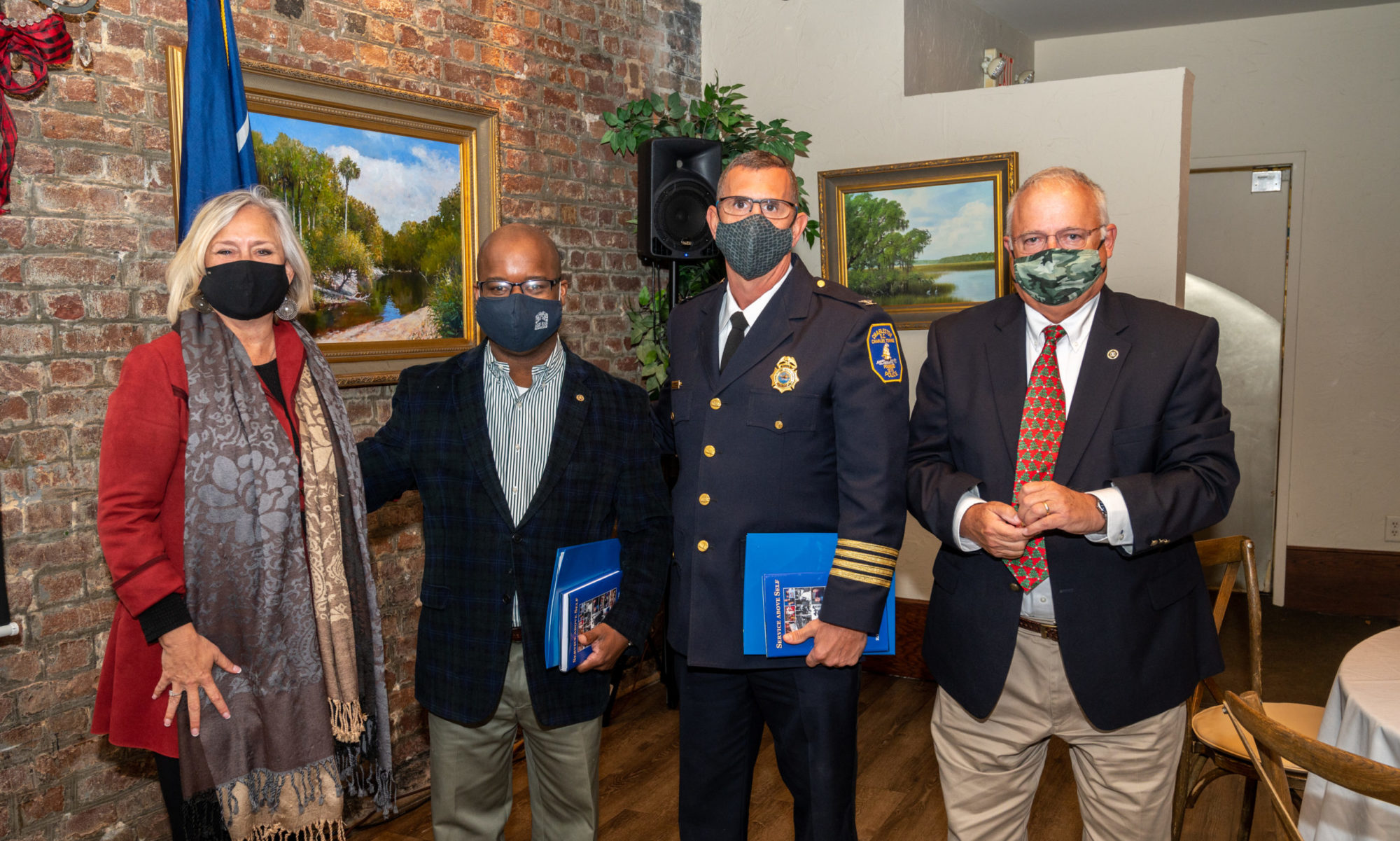August 23, 2016 – Continuing the strong run of timely speakers, our program committee gave us a chance to hear from Julia Martinelli, the Executive Director of AccessAbility. Martinelli has been personally involved with the issues faced by South Carolinians with special needs for almost 30 years – ever since her son Richard at the age of two in 1989, just weeks after Hurricane Hugo was in an accident in which he suffered a brain injury leaving him severely disabled. AccessAbility has been in operation since 2001, but Martinelli began her service as executive director only recently. The mission of her agency is to provide advocacy, education and support to enhance access to South Carolinians with special needs in the five counties her agency serves. As she pointed out many of us at some point in our lives will be touched by disability either becoming disabled ourselves, caring for a parent who is disabled, or, like her, caring for a child who is disabled.
In South Carolina around 24% of the population has some form of disability and for those over 65 the proportion increases to 36%. In the five counties her agency serves, Martinelli says there are 128,000 people needing their services. In Dorchester County alone there are 986 families where older people in their eighties are taking care of family members with special needs, often children in their sixties. Most only get $428 a month through government programs, meaning that most of them live in poverty – all the more reason why access to education and access to employment are so vital to improving the quality of life of these members of our community.
Under Martinelli’s leadership AccessAbility has developed a series of workshops which are presented both at its offices on Dorchester Road and at other locations throughout its service area. These workshops typically last an hour and may include six sessions, depending on the focus of the particular workshop or workshop series. Some workshops are focused on informing those caring for individuals with special needs of the services available. Some are focused on providing education about special needs individuals to the public or to professionals. As examples, Martinelli mentioned the workshops they have presented for police and first responders and for medical care providers to help them understand better how to interact with individuals with special needs in their daily work. Currently they give upwards of forty workshops a year.
Martinelli says the most important change which needs to be made in the perception of the general public of individuals with special needs is to move the focus from the inabilities of those individuals to the abilities of those individuals. Similarly one of the most important things those with special needs must learn is that, despite perhaps years of hearing from those around them that the opportunities open to them are limited and thus their lives are limited, they have abilities which, when they are given access to both education and employment, will allow them to be productive and find reward in life. Martinelli pointed out that everyone wants to contribute and those with special needs are no different. As an example she pointed out that all of the staff at her agency are college educated and yet the majority of those working for AccessAbility have special needs themselves.
To ensure that the focus of the general public is on the abilities of those with special needs and to ensure that people with special needs know they have opportunities, AccessAbility has increased its association with schools and has a presence in all high schools in the five counties it serves. In addition to the children with special needs in our schools, our community is seeing more veterans who have returned from war with disabilities and AccessAbility is also partnering with other organizations to meet this growing need.
Martinelli offered the example of her son and a childhood friend to help us change our focus from the disability to the ability of people with special needs. She was told her son would likely be best serve by being institutionalized as he would never be able to sit up on his own. Despite this dire prognosis, after time she noticed her son making strange movements of his neck and then his stomach. At first worried that this was a sign of some additional complications, she soon realized that he was trying to teach himself how to sit up on his own and then lie back down on his own – skills he did ultimately develop. When Martinelli was in school she was a member of her school’s speech and debate team. There was a boy with special needs who was on the team as well. Every time they competed, this boy beat her. Once, however, she did beat him, but the judge’s still gave the trophy to the boy. He taunted her about that and she pointed out that she won indicating that he only received the trophy because of his special needs status. He eventually did admit that she had won, but more importantly that boy ultimately rose to leadership in the office of equal opportunity in the U.S. Army. These examples from Martinelli show clearly that when we as members of society focus on the abilities of those with special needs, and those with those special needs also learn to focus on their own abilities, and access to education and employment is provided, great contributions can be made by those with special needs.
— Alex Dallis, Keyway Committee


